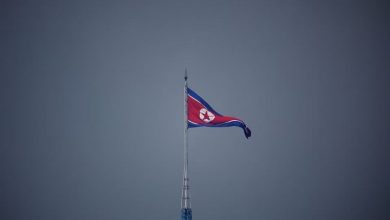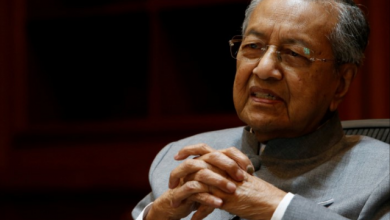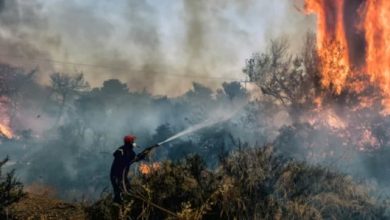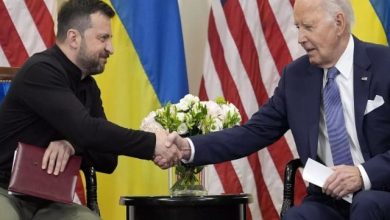Indians vote early in fifth phase of polls to avoid scorching heat

Indians began voting early on Monday in the fifth phase of mammoth general elections, with thousands queuing at polling stations to beat the scorching heat in the financial capital of Mumbai and the sprawling states of Uttar Pradesh and Odisha.
The world’s largest election began on April 19, amid high summer temperatures, with the weather office predicting more days of heatwaves than usual through the season.
Votes will be counted on June 4, with Prime Minister Narendra Modi expected to win a rare third consecutive term.
“Given the hot and humid conditions, there could have been fans and better arrangements for the ill and those with disabilities,” said Sangeeta Rege, 46, a director at a health research organisation.
She was speaking after two senior citizens collapsed at her polling station in Mumbai with temperatures of 33 degrees Celsius and humidity of 71 per cent that made it difficult for many, especially the elderly, to set foot outdoors.
Nearly a billion people are eligible to vote in India’s elections, but after poor initial turnout in early phases, more exercised the franchise to take the average of the first four rounds to 66.95%, with 69% voting in the May 13 fourth phase.
Monday’s phase has the fewest constituencies going to the polls, with 89.5 million voters set to pick representatives for 49 seats.
High-profile candidates in the fray on Monday include trade minister Piyush Goyal, standing from one of six seats in Mumbai, and defence minister Rajnath Singh from Lucknow, both cities where there has been poor voter turnout in the past.
On Sunday, the Election Commission specifically urged residents of both cities “to erase the stigma” of urban apathy.
“At the core of our vision for Mumbai is – better infrastructure and more ‘ease of living,” Prime Minister Narendra Modi said while campaigning in the city last week.
Read India election: Inside Modi and BJP’s plan to win a supermajority
Gandhi family bastions
Two boroughs of the opposition Congress party’s Nehru-Gandhi dynasty are also going to the polls in the large politically crucial northern state of Uttar Pradesh.
Family scion Rahul Gandhi is contesting the seat of Raebareli, in addition to Wayanad in the south, which has already voted.
Smriti Irani, minister for women and child development, is contesting from Amethi, where she defeated Rahul Gandhi in 2019, to take a seat his family held almost continuously for the last four decades.
Other keenly watched contests in the state include Kaiserganj, where the BJP is fielding the son of a former wrestling federation chief, although the father has been charged with sexually harassing female wrestlers.
Poor voter turnout became a concern for the ruling BJP initially, and analysts believe the low numbers cast doubts on the landslide victory the party and its allies sought.
But long queues snaked out of polling booths in Mumbai and Bolangir in the eastern state of Odisha after the weather department forecast maximum temperatures to rise between 2 degrees and 4 degrees Celsius.
“The election aimed “to ensure stability and security … plus the development of my city and country which … is happening at a rapid rate,” said Mumbai homemaker Jaya Roy Chowdhury, 48.
“The BJP has not fielded the right candidate for the Lok Sabha, but we are voting … with Modi in mind,” said 55-year-old Odisha farmer Girish Mishra, referring to the lower house of parliament.
Modi, accused by opponents of targeting minority Muslims to please hardline voters, resolved in a television interview aired after the fourth phase to “not do Hindu-Muslim (in politics)”.
He has repeatedly accused the Congress of plans to extend welfare benefits to Muslims at the expense of disadvantaged tribal groups and Hindu castes, a claim the opposition party has denied.





